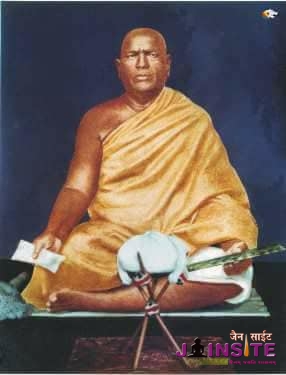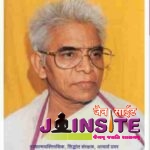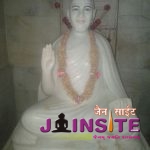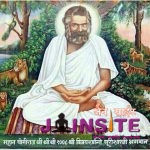Jain shasan ke upkari Acharya Vijay Anandsuriji
Acharya Vijayanand Suri (1837–1896), also known as Atmaramji of Gujranwala, was the first Swetambar Murtipujaka Jain monk in modern times to receive the title of Acharya.Born and raised in Punjab, he was initiated as Sthanakvasi monk who later joined Murtipujaka tradition. He travelled extensively in Gujarat, Rajputana and Punjab; and organised and reformed Jain community, ascetic orders and literature. He wrote several books in Hindi and was invited to the first World Parliament of Religions in 1893 which was attended by Virchand Gandhi later.
He was born on 6 April 1837 CE (Chaitra Shukla 1 Vikram Samvat 1893) in Lehara, Punjab to Ganeshchandra and Rupdevi. He was born in a Brahmakshatriya Hindu family.His father was an army official of Ranjit Singh. His father died in his early childhood and he was raised by his mother. He was given to Sheth Jodhmal of Jira, Punjab for education in VS 1903. He studied Hindi and arithmetic. He came into contact with Sthanakvasi monks during his school life. A couple of influential Sthanakavasi monks initiated him in 1853 (VS 1910) at the age of sixteen and was given the name of Atmaram
Atmaram began the study of Jain scriptures along with his fellow ascetics. He was later joined by a Yati of Tapa Gaccha lineage. After several years of study, he was convinced that the Sthanakavasi position of opposition of Idol-worshiping contradicted the scriptures. Later in 1876 (VS 1943), he was initiated again as a Murtipujaka monk in Ahmedabad by Muni Buddhivijay, also known as Buterayji of Tapa Gaccha who himself was Sthanakvasi monk before. He was given a new name, Anandvijay.
In 1886, he was conferred the title of Acharya by the congregation of Palitana during his Chaturmas (four months stay during rainy season) there. This was a notable event because since four centuries, there wasn’t an ascetic who was conferred with the title of Acharya. He was the first Acharya of contemporary Jain history as till then only Yatis were conferred with the title. As a result of reforms advocated by him, the influence of yatis declined, although the yatis still survive in some locations.
He travelled extensively in Gujarat and Punjab. He convinced to open Jain Bhandaras (libraries) with Jain literature kept closed for people since years and had texts copied and examined by scholars. He brought these literature to light and instilled sense of identity among Jains. In 1893, he was invited to participate in the first ever World Parliament of Religions at Chicago and since Jain monks do not travel overseas he sent Virchand Gandhi to United States to participate in the World Parliament of Religions. He won silver medal in 1893 at Chicago and was covered by many USA periodicals. Based on questions that he had received from the organizers of the Parliament, he wrote a book for the occasion entitled The Chicago-Prashnottar or Questions and Answers on Jainism for the Parliament of Religions Held at Chicago USA in 1893. He was instrumental in reviving the tradition of fully initiated monks (Samvegi sadhu). He also convinced many Sthankvasis in the Punjab to join the Murtipujaka tradition. About 15000 people converted to Jainism due to his efforts. He also encouraged the construction and renovation of Jain temples. He had helped orientalist Rudolf Hoernlé in his studies on Jainism.
He died in Gujranwala (now in Pakistan) on 20 May 1896 (Jayeshtha Shukla 13 VS 1953). A memorial shrine dedicated to him was built there, which is now used as a police station of Sabzi Mandi area. His footprints along with the chhatri (cenotaph) over them, are moved to Lahore Fort Museum.






